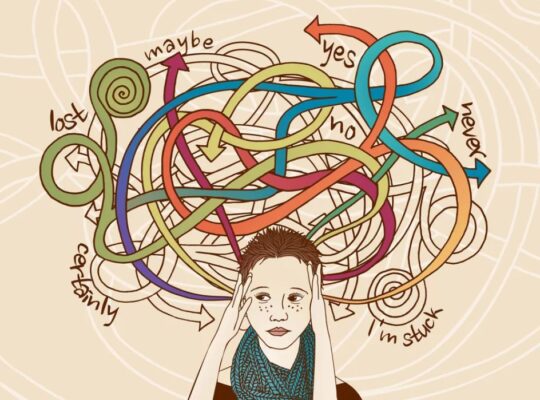‘Ego’ has always been an evil word. “He is an ego maniac!!”, “She is so egoistic!” have always held negative connotations.
So when someone says “Ego is not bad” it can be treated as another platitude which is more a function of our “inability to call a spade a spade”.
Come on!! How can having an ego be OK!?? Right? 😊
To explore this word further, I invite you to keep your current connotations aside for a moment. Let us not talk about ‘ego maniacs’ and ‘egoistic people’. They have connotations of ‘superiority’, ‘arrogance’, ‘self aggrandizement’. Let us park those meanings for a moment
In analytical psychology, ‘ego’ has a very specific definition. It is the arbitrator between the ‘id'(instinctual desires) and ‘super ego'(Social conditioning) Let us set aside these clinical meanings for a moment too. After all, having or not having an ego might have nothing to do with knowing the scientific definition of it right?
Starting simple
If I ask “Who are you?” – would you have an answer?
If your answer is ‘Yes’, then you have an ego.
Your answer might be roles like “Man”, “Woman”, “father”, “sister”, “Hindu”, “VP”, “citizen”, “mother”, “minority”, “victim” or positive attributes like “passionate”, “Loving”, “kind”, “intelligent”, “calm” or negative attributes like “impatient”, “critical”, “selfish”, “stupid”. Even “Ego less”!
‘Ego’ then simply put is your self-concept. It does not matter what that concept is. It does not matter if it is good or bad. If you are human, it exists.
Now, some people might disagree with using the word ‘Ego’ for this. Because the definition does not fit their pre-held connotations of it. Does not matter. You can call it ‘Chicken Tikka masala’. As long as you grasp the distinction, that regardless of its content, positivity or negativity – every human being has a self-concept. Which he or she identifies with.
Identification
I have often found it useful during heated performance appraisal discussions to pause, and calmly ask “You know we are not discussing your evaluation, right?”
After letting the subsequent bewilderment percolate for a while, and when the inevitable question of “Then what are we discussing???!!” arises, I add
“We are discussing your performance evaluation”
Said rightly, this usually creates breathing space for the appraisee, and if we are lucky, inspires a dispassionate look.
When we identify with something it becomes us. Not something we do, but something we are.
When we identify with something it becomes us. Not something we do, but something we are.
“I tend to experience angry thoughts frequently” is very different from saying “I am an angry person”. “I am depressed” is very different from saying “I experience depressive thoughts”. “I often forget to ask my kids about school” is very different from “I am a bad father”
This distinction is crucial. Without it, a threat to our self-concept becomes a threat to us! Our survival.
And whether it is a human or animal or insect, when it’s survival is threatened, the natural response is…you guessed it right…fear!
Remember, nothing out of this is ‘wrong’. Being a human is natural. Having a concept about yourself is natural. Identifying with it is natural. Experiencing fear when our identity is threatened is natural.
But the things we do when we react to fear might not be useful. Especially when what you are trying to protect is a ‘concept’!
Reacting to fear
An animal might run away, shrink back or attack when threatened. One person might just shut up when challenged and decide that “Expressing oneself is useless”. We start losing out on life’s opportunities and possibilities.
Another person might attack and impose. She might lose on relationships, connectedness.
The latter is who we usually call ‘ego maniacs’ or ‘egoistic’. The former we usually refer to as ‘inferiority complex’, ‘having low self esteem’ etc.
But the root issue for both people is the same: They are overly identified with their concept about themselves. Hence they are over-sensitive to any perceived threat. The difference is only in the way they respond to fear.
Ego is not the issue, identification is
Knowing “Why we should be egoless” is no cure for ego. Identifying with “I am an egoless person” or “I am an egotistic person” is all part of the self concept.
And concepts do not have sizes. They cannot be ‘high’ or ‘low’. So high self esteem is like saying “I dreamt last night that I was Bill gates”. Low self esteem is like saying “I dreamt last night that I was a beggar”. One feels better than the other. But both are just concepts. Not reality.
The important question is not what self-concept we have. The question is how much do we “buy” into it, how identified are we with it, how real do we think this concept is?
And the indicator of that is not what the self-concept is, or external behavior, but internal fear.
How disturbed do we feel when someone disagrees with our self concept? When somebody does not agree with our evaluation of it? That is directly proportional to the fear we will experience, and hence the degree of power it will hold over us.
The answer
The answer therefore is not in eliminating the ego(it is impossible and unnecessary, unless you have a problem being human), but being aware of its workings. Simple being aware of its workings creates the space to choose.
Until then, we don’t have an ego. The ego has us.




